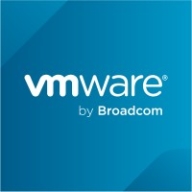

Pega Platform and vCenter Orchestrator compete in the business process management and automation category. Pega Platform appears to have the upper hand due to its higher potential ROI and suitability for large institutions.
Features: Pega Platform offers superior business process optimization, faster market time, and enhanced customer satisfaction. It excels in case management, integration capabilities, and has a user-friendly interface. vCenter Orchestrator provides valuable workflow automation, a comprehensive workflow library, and ease of managing virtual machines across networks.
Room for Improvement: Pega Platform is expensive for smaller enterprises and may have a complex upgrade path. It could enhance its UI to match code-based programs and further simplify licensing. vCenter Orchestrator faces challenges with complex licensing and could improve pricing clarity. It also requires streamlining integration with other platforms for better efficiency.
Ease of Deployment and Customer Service: Both Pega Platform and vCenter Orchestrator provide straightforward deployment and strong customer support. Pega is known for its low-code application development, aiding digital transformation significantly, while vCenter offers user-friendly deployment with good technical support and integration for efficient management.
Pricing and ROI: Pega Platform, while acknowledged as pricier, offers competitive pricing with potential ROI ranging from 30% to 80% depending on business applications. It is favored by large organizations for its ROI. vCenter Orchestrator is viewed as expensive; however, its pricing is reasonable for its capabilities, providing enterprise-level ROI, particularly beneficial for high-revenue industries.
I estimate that projects take days rather than weeks when using Pega Platform compared to traditional coding.
Pega Platform has positively impacted my organization, as they were using different technology before and have seen tremendous success and return on investment, so they are very happy.
The technical support from Pega is very low, rating a one or two out of ten.
I never needed support from the platform standpoint, but if additional features are required, we have regular meetings with the product team for feedback.
Pega's technical support team is very helpful.
Currently, big banking providers and insurance providers, even the members for healthcare payers, are using more than millions of operations on a daily or weekly basis.
For customer interactions, while the Pega Platform's AI-based decisioning and predictive analytics are great, the Process AI is not very popular yet, as it works on process data rather than customer data.
There are always areas for improvement, which they are addressing in every part of the patch releases.
Pega introduced Constellation, which allows a user to build a more engaging visual experience.
The pricing is expensive, and this is an issue.
Pega is priced higher than open-source options like Flowable but is suitable for large-scale industries like banking and insurance.
From a licensing perspective, it is higher than the competition.
With Pega Platform, the development process becomes faster. For example, coding an application can take a couple of weeks or months but can be done in weeks using Pega Platform.
Pega Platform is excellent for enterprise-level solutions with integrations to entire systems, including case management, service orchestration, CRM, decision-making capabilities, digital process automation, and AI-driven functionalities.
The best feature is case management, which is so automated and does most of the things out of the box without requiring a lot of customizations.
| Product | Market Share (%) |
|---|---|
| Pega Platform | 5.2% |
| vCenter Orchestrator | 0.7% |
| Other | 94.1% |

| Company Size | Count |
|---|---|
| Small Business | 11 |
| Midsize Enterprise | 15 |
| Large Enterprise | 69 |
| Company Size | Count |
|---|---|
| Small Business | 18 |
| Midsize Enterprise | 13 |
| Large Enterprise | 20 |
Pega Platform provides flexible business process management with a focus on rapid application development and automation through a low-code approach, enhancing efficiency across sectors.
Pega Platform is renowned for its ability to streamline operations with robust automation features, including robotic process automation and decision-making capabilities. Its intuitive interface and workflow management contribute to a reputation for enhancing business processes. Although users face challenges with integration limitations and high licensing costs, they benefit from rapid deployment and efficient process adaptations. The unified architecture reduces complexity, while case management and integration services support digital transformations in sectors such as banking, insurance, and healthcare.
What are the key features of Pega Platform?
What benefits and ROI should users expect?
In industries like insurance, banking, healthcare, and government, Pega Platform is implemented to automate diverse workflows, supporting initiatives from claims processing to customer onboarding. Enterprises use Pega for case management and digital transformations, valuing its out-of-the-box integrations and real-time reporting capabilities to boost operational automation and enhance customer experiences.
VMware vCenter Orchestrator simplifies the automation of complex IT tasks and integrates with VMware vCloud Suite components to adapt and extend service delivery and operational management, effectively working with existing infrastructure, tools and processes.
We monitor all Process Automation reviews to prevent fraudulent reviews and keep review quality high. We do not post reviews by company employees or direct competitors. We validate each review for authenticity via cross-reference with LinkedIn, and personal follow-up with the reviewer when necessary.